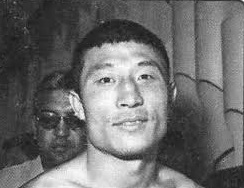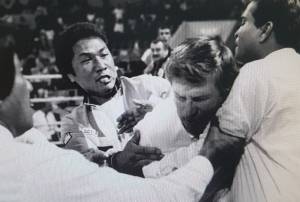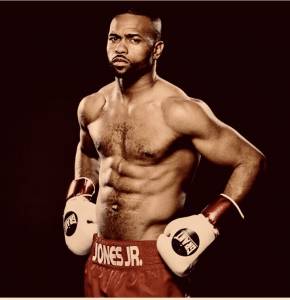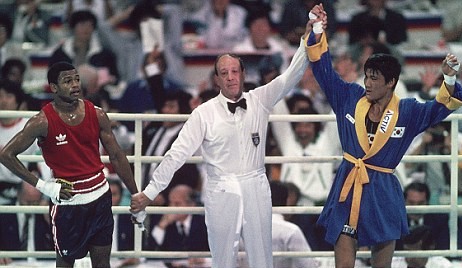My last Korea Times column (February 1-2, 2020) referred to Nino Benvenuti of Italy having lost a controversial boxing match to Korea’s Kim Ki-soo at Jangchung Gymnasium on June 25, 1966. Since the KT editor limits me to 800 words, I could not go into detail.

Here is what happened. Benvenuti, the world light-middleweight champion, fell behind in the early rounds. Kim had tired by the 10th, however, and Benvenuti seemed to have the fight in hand. After the 14th, things got weird. One of the ropes mysteriously broke, and 10 minutes were needed to repair it—long enough for Kim to catch his breath and regroup. The bell rang faintly for the 15th. As Benvenuti remained seated on a stool with a towel over his head, Kim raced across the ring and gave him a solid left to the nose! Referee Nick Pope issued a warning but not a disqualification. Benvenuti, thoroughly dazed, jumped up and resumed fighting, but Kim was able to hold on for a split decision. The next day, a convertible drove Kim through the streets of Seoul as gleeful crowds hailed the new champ.

I can’t decide which was worse—the previously undefeated (65-0) Benvenuti losing his title under such dubious circumstances or Park Si-hun “beating” Roy Jones, Jr. for the light-middleweight gold medal in the 1988 Seoul Olympics.
The problems that infested the boxing competition at the Seoul Olympiad can best be understood by taking a look at what transpired in Los Angeles in 1984. After several decisions went against Korean boxers, Hanhwa executive Kim Seung-yeon bestowed some of his largesse on the program. For four years, officials, coaches and the fighters themselves had simmered with anger; they were determined to get revenge. In some cases, gold medals were “promised.”
Emotions spun out of control during a bantamweight match ten days before Jones and Park fought. Byun Jong-il and Bulgaria’s Alexander Hristov battled at Jamsil Students’ Gymnasium. The latter won in a 4-1 decision, but Byun’s coach, Kim Sung-eun, was enraged. He leaped into the ring and began attacking the referee, Keith Walker. Kim had plenty of help as a small riot took place before the television cameras and millions watching across the globe. Walker, bruised and cut, went straight to his hotel and then to Gimpo Airport—wanting only to escape Korea.

There was some confusion on the part of the locals about Walker. They thought he was American when in fact he came from New Zealand. Also, they appeared to be under the impression that he had handled an earlier fight that went against a Korean boxer. Actually, this was the first bout he reffed in the Seoul Olympics. As events unfolded, it was his last.
Now, Park and Jones would meet at the same venue. Park had struggled to reach the finals with questionable victories over guys from Sudan, Germany, Italy and Canada. Jones, whose footwork and fast hands were compared to Muhammad Ali and Sugar Ray Leonard, had won all of his bouts (against fighters from Malawi, Czechoslovakia, the USSR and the UK) easily.
This one was not even close. Jones schooled Park, using him as a punching bag from start to finish. Jones threw 303 punches and landed 86 of them, compared to 188 and 32 for Park. Referee Aldo Leoni twice had to give Park a standing eight-count. (When is the last time you saw the winner of a three-round bout getting a standing eight, much less two of them?) The crowd, overwhelmingly Korean, roared whenever Park connected. The judges, from Uganda, the USSR, Morocco, Hungary and Uruguay, knew the four main criteria: clean punching, effective aggressiveness, ring generalship and defense. They undoubtedly realized that Jones had dominated Park in each.
connected. The judges, from Uganda, the USSR, Morocco, Hungary and Uruguay, knew the four main criteria: clean punching, effective aggressiveness, ring generalship and defense. They undoubtedly realized that Jones had dominated Park in each.
It was seemingly a pro forma matter that Jones would be announced as having won. But the judges (possibly bribed, possibly fearful of a repeat of what had taken place after the Hristov−Byun match) marked their scorecards 3-2 for Park, and Leoni dutifully raised his hand. First, however, he murmured to Jones, “I can’t believe they’re doing this to you.” While many in the arena cheered out of misplaced national pride, not all did. They realized that the Olympic motto of “higher, faster, stronger” was being subverted. Nobody knew more than Park that his gold medal was tarnished, so he picked up his opponent and carried him around the ring. He honored Jones in this way and is even said to have apologized.

Veteran ring observers agreed that it was a disgrace. When Jim Lampley of ABC Sports said “this is the worst decision in the history of amateur boxing,” he was not engaging in hyperbole.
The three judges who had voted for Park were banned from any future Games, but the deed had been done. Jones, of course, was dismayed, but he responded with surprising grace. He did not refuse to take his silver medal, and he stood on the podium one level below Park.
The lives of these two fighters after their bout in Seoul contrast markedly. Park retired and never fought again. I read somewhere that he “retreated into obscurity,” but that may be too harsh. While Park undoubtedly benefited from this athletic travesty, he had done nothing to make it happen. And Jones? He went on to a fabulously successful pro boxing career that included world titles in four weight divisions (earning about $45 million in prize money) and did not quit until he was 49. Jones finished with a record of 66-9, and most of his fights were against men far tougher than Park Si-hun.


2 Comments
Pugilists and ice skaters both have similar subjective judging criteria. This why I would rather watch track and field….no subjective criteria, rather the winner is fastest, or longest jumper, etc.. But in the case of ice skating, the judging makes for some hair splitting decisions that most assuredly will not be unanimous supported by the participants or the audience. Is it political or just subjective or both? In the case of a boxing match, you brought up a great case in point with the severed rope and the boxer taking advantage of the other with the towel over his head, yet there was no foul and the offender won. I hate that subjective aspect of these kind of sports. I am of course omitting the TKO since that makes it obvious who is the winner. Even the stats of the one bout where the obviously dominant fighter had 303 swings and 86 hits, was not ruled the winner. Also, lest I forget, there is the unparalleled damage to the head. I find it illogical to participate knowing these are the certain and expected outcomes. In conclusion, boxing for me lacks appeal. I realize I am on the fringe since it is a huge sport and big money.. but am I the only one that finds that it reminds me of the Roman Colosseum and gladiators fighting to the death at all? Seems almost as barbaric.
I share your feelings about sports with judges (boxing and ice skating), but don’t football, baseball, basketball and soccer have such persons? And while boxing is “barbaric,” it exists. Anyway, the things that happened to Nino Benvenuti, Keith Walker and Roy Jones, Jr. are kind of interesting, don’t you think?
Add Comment